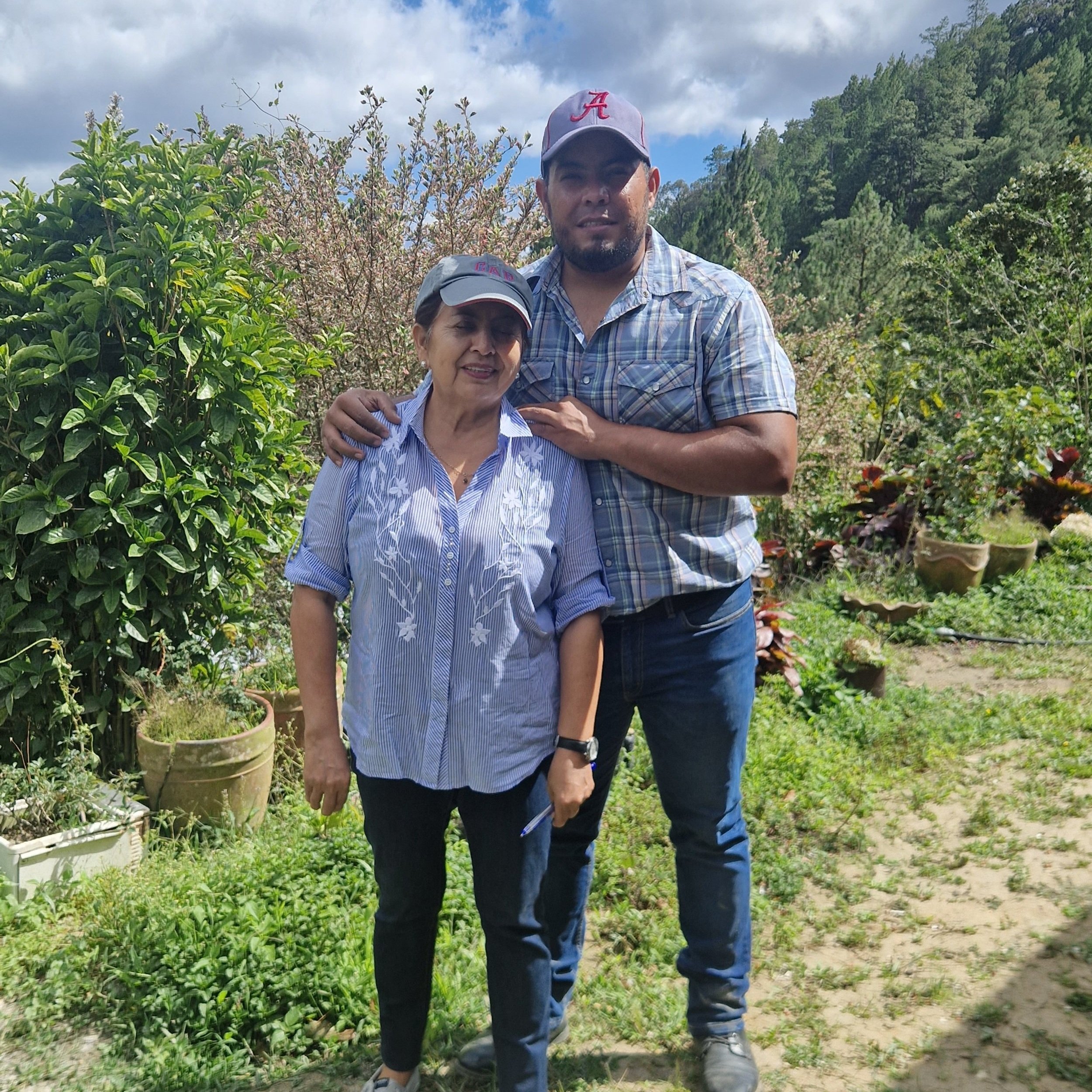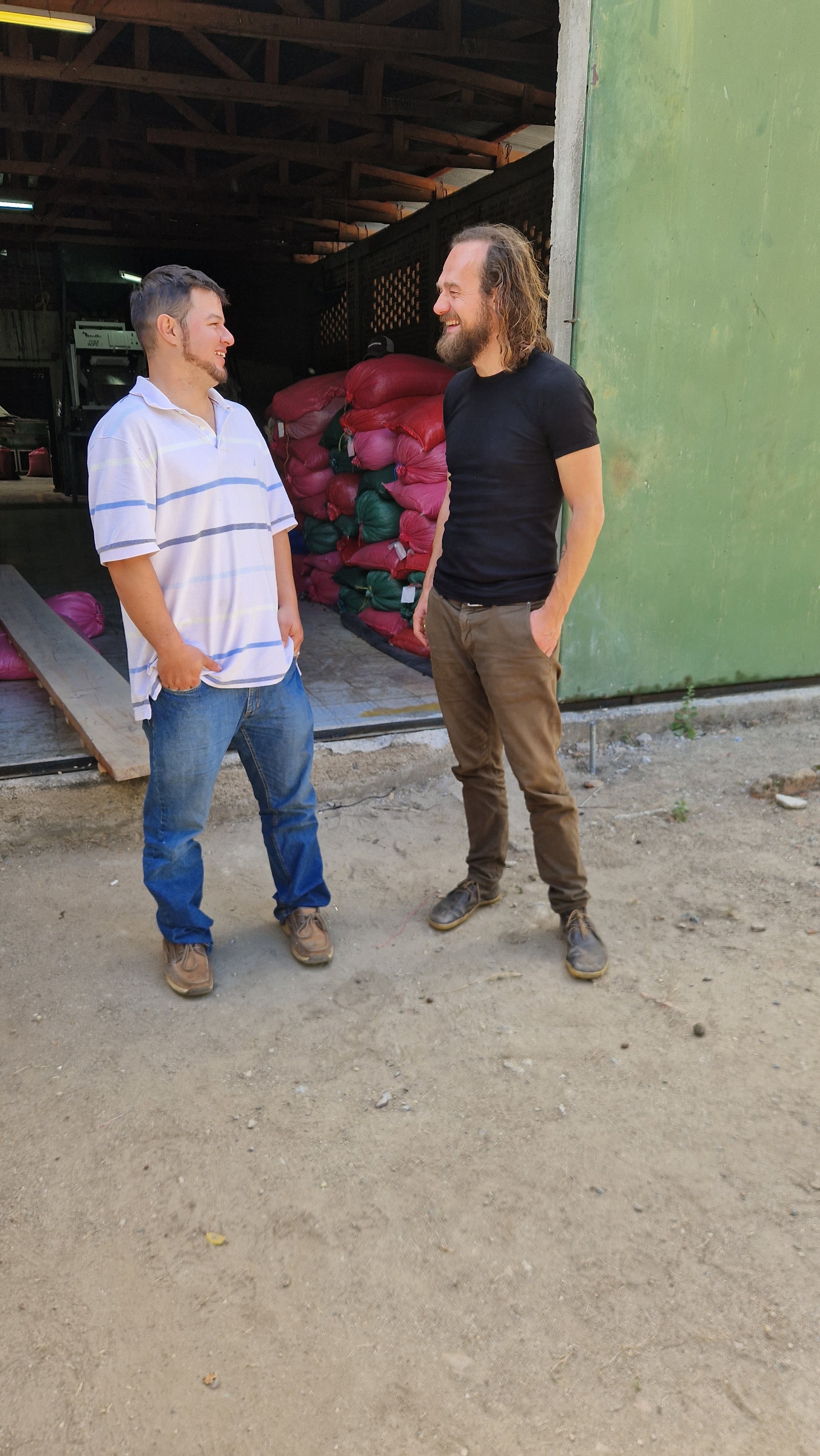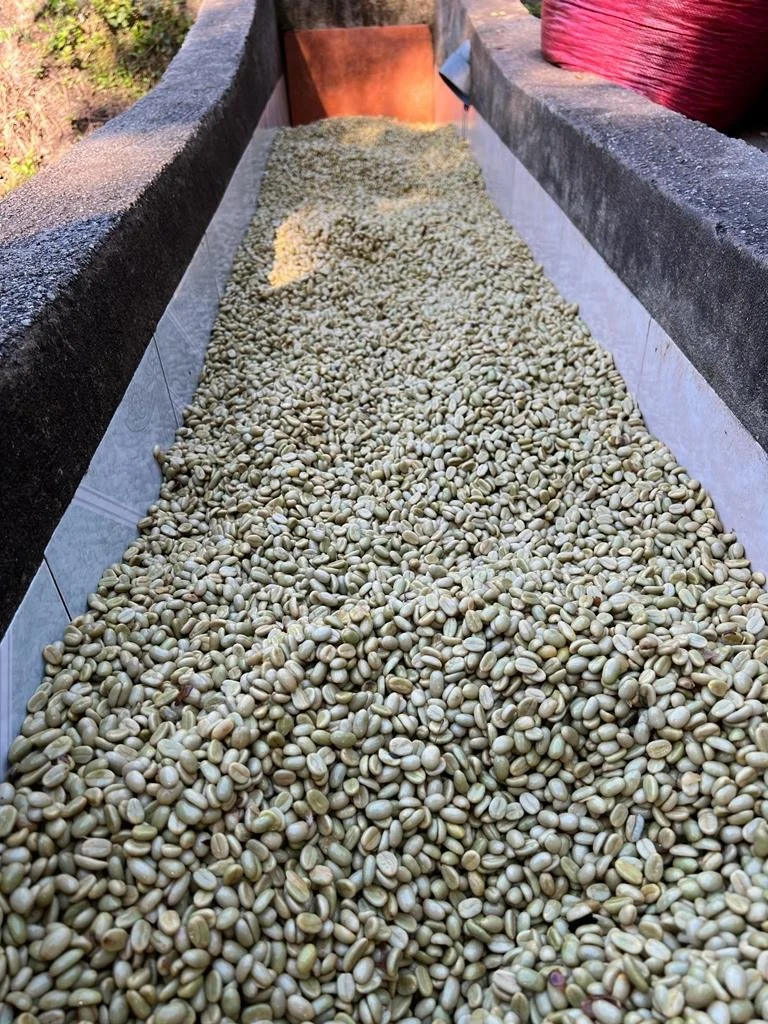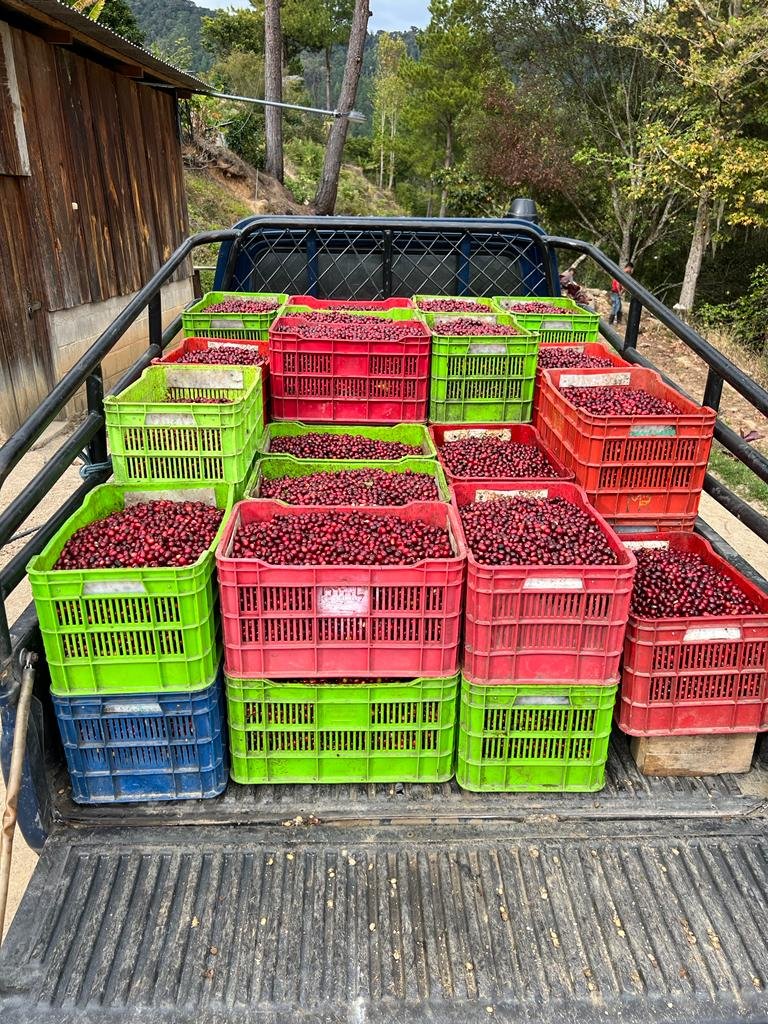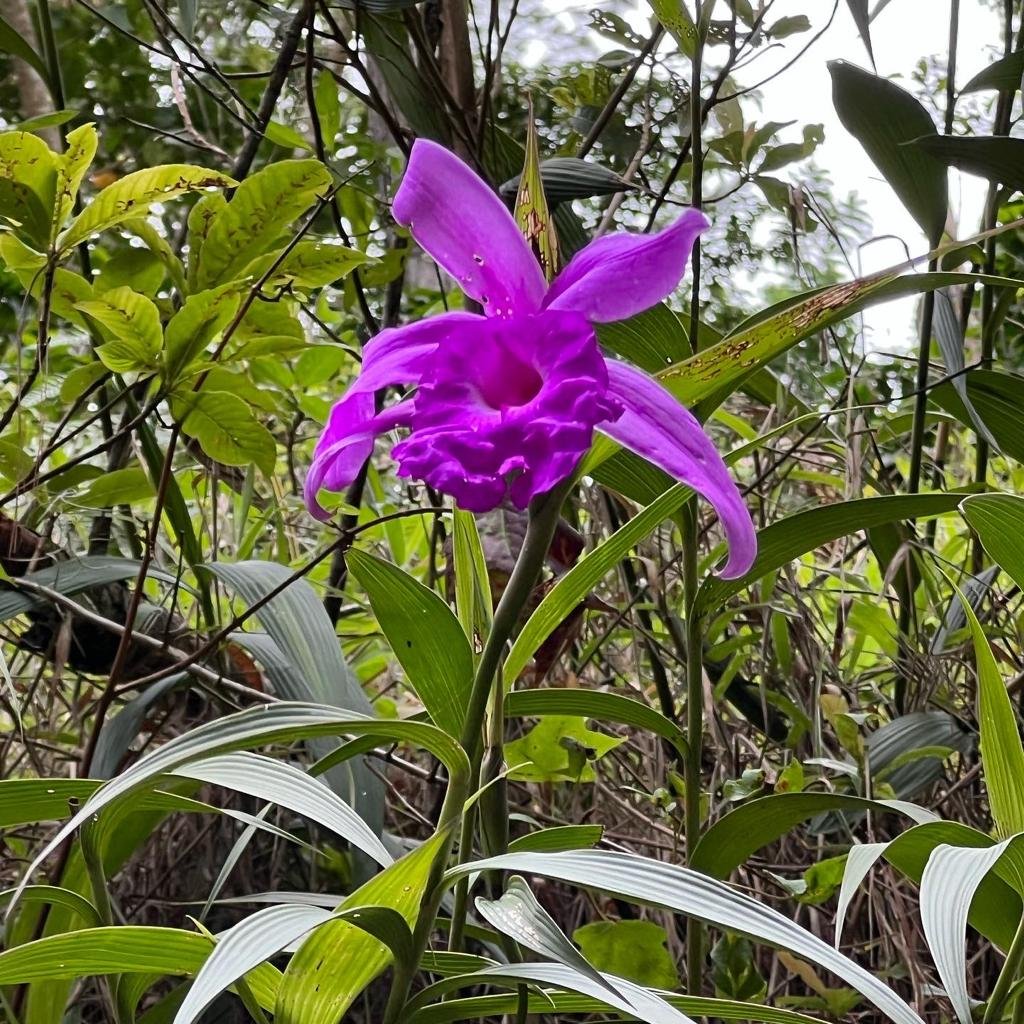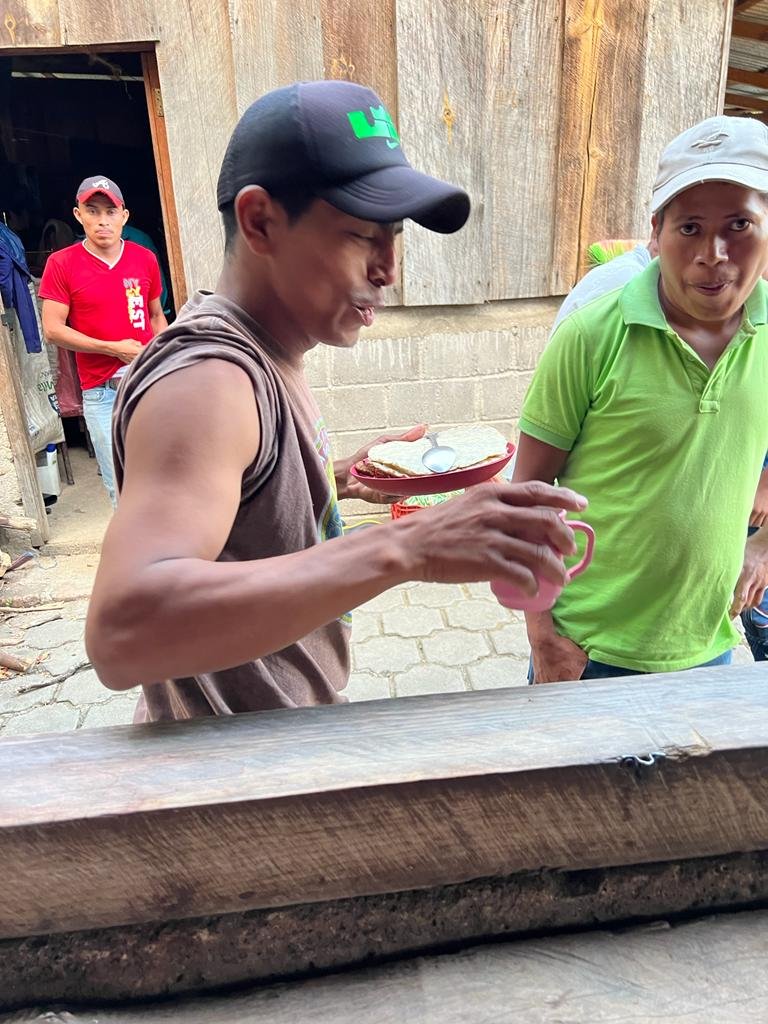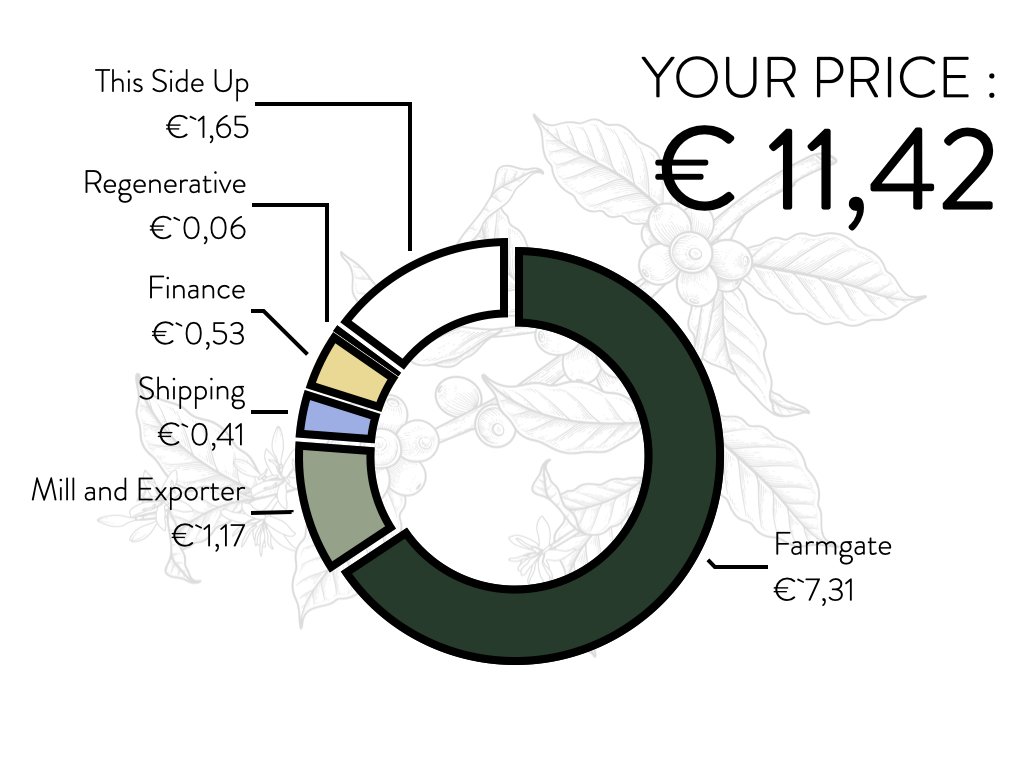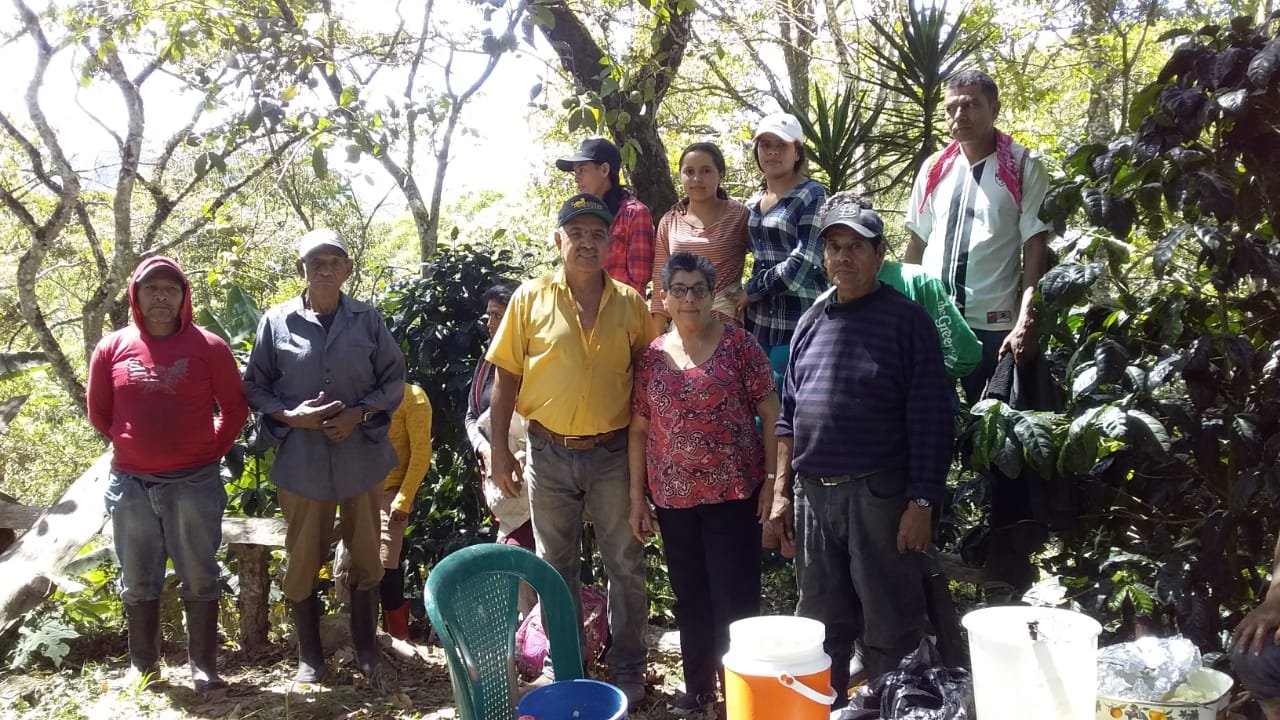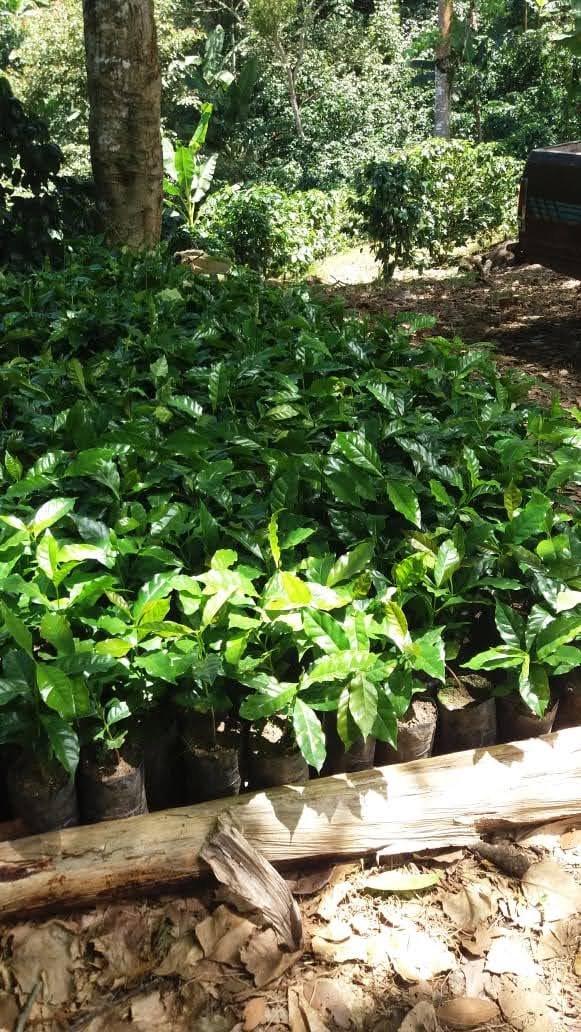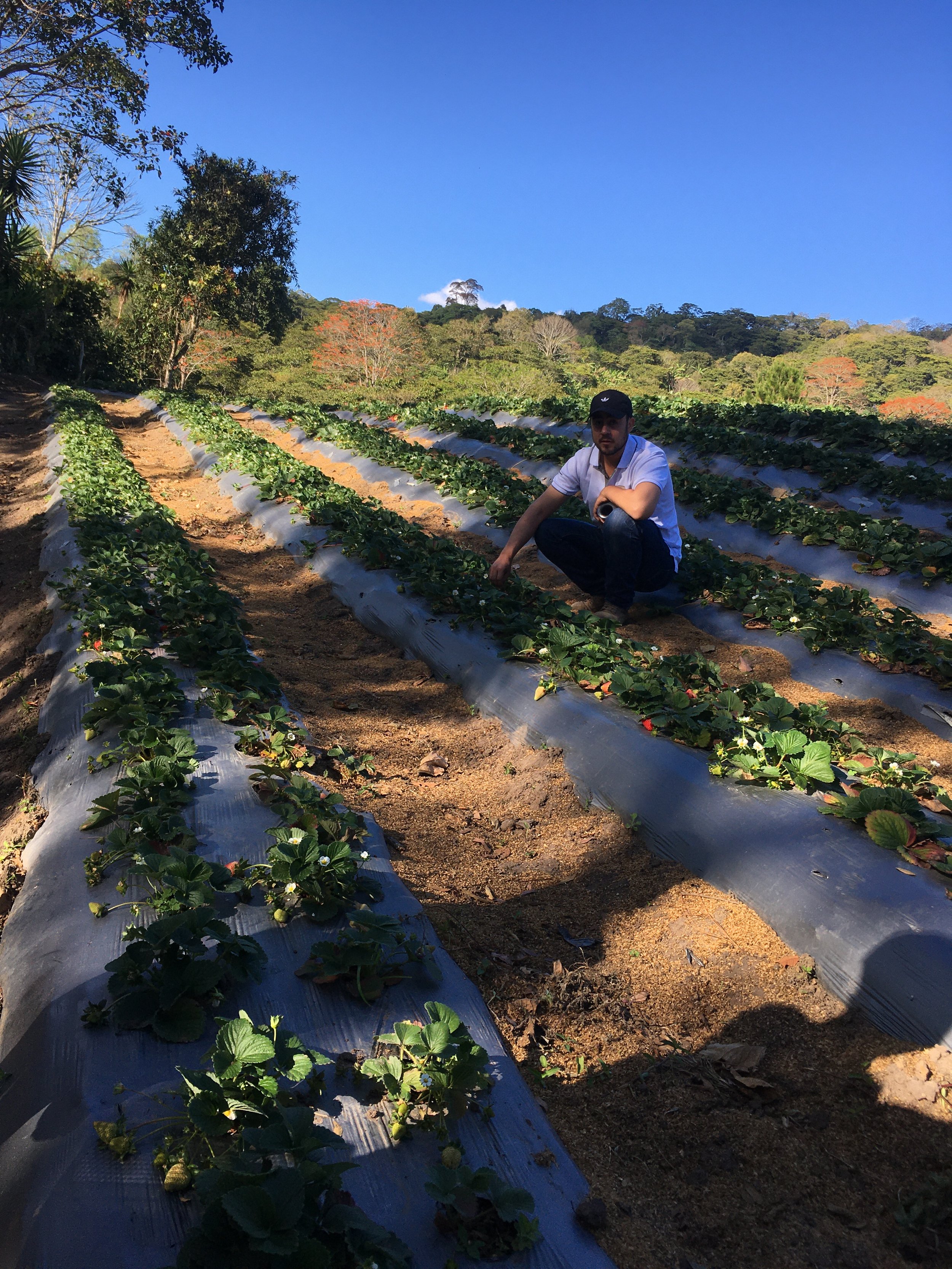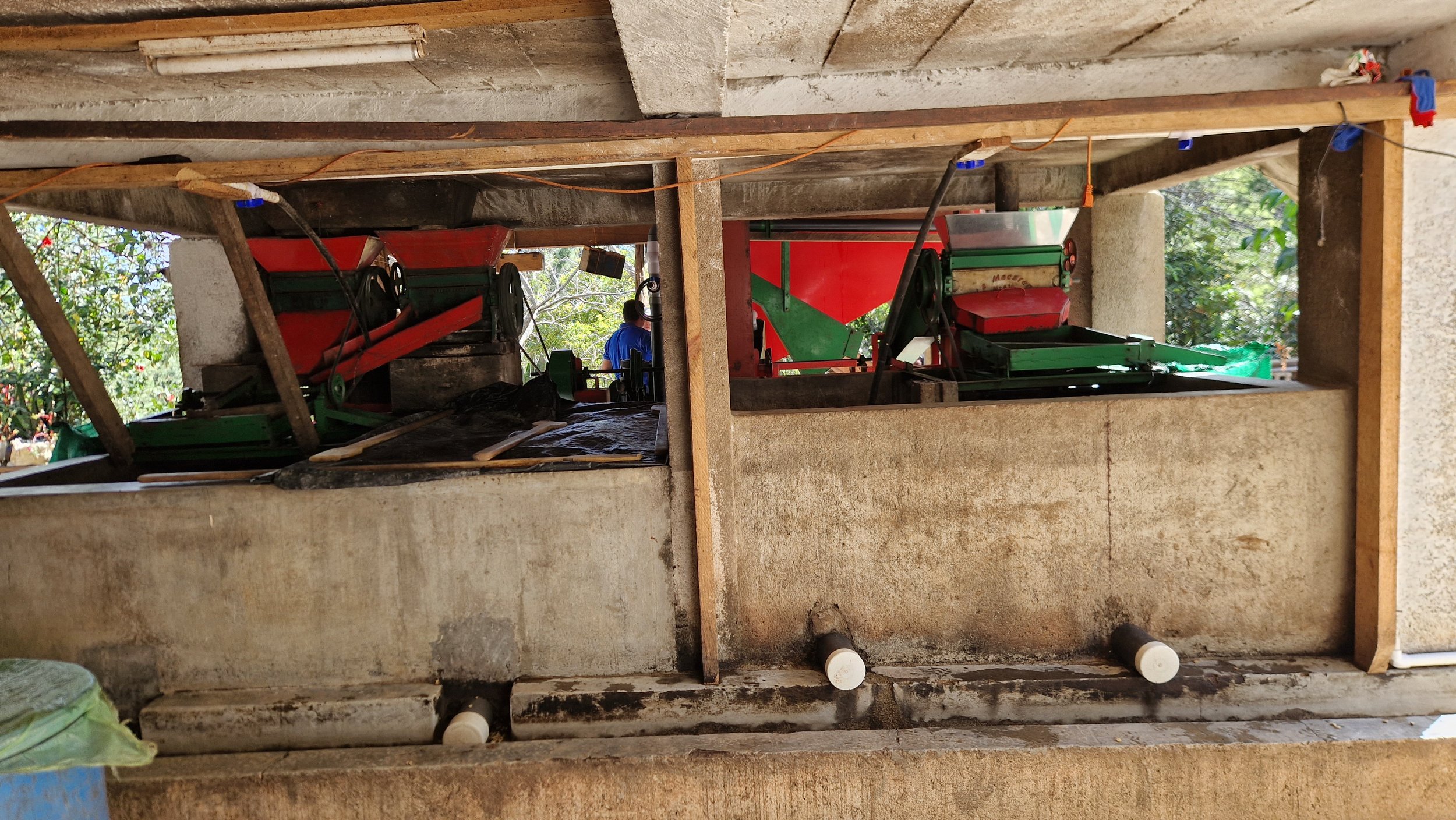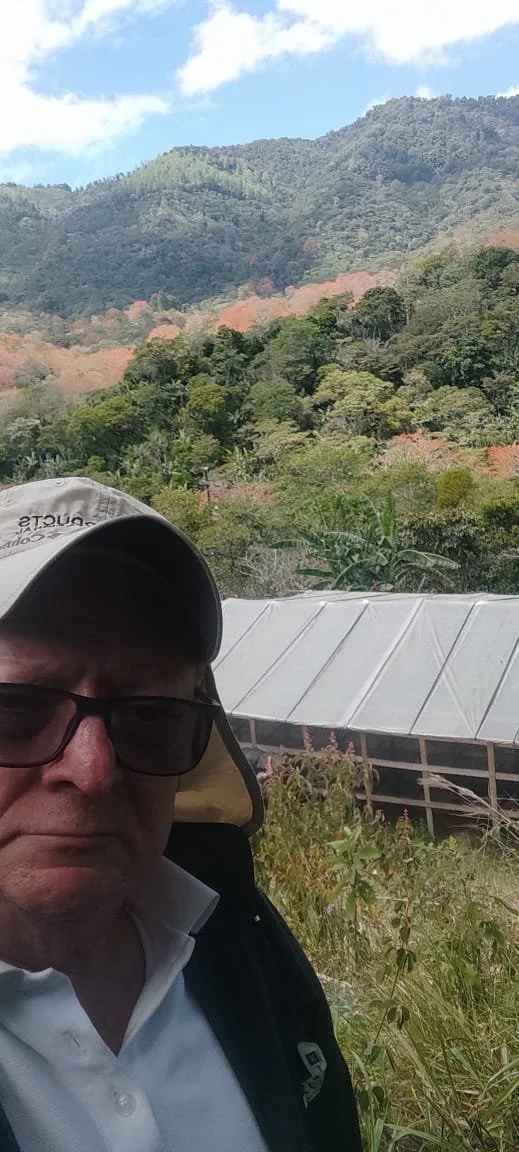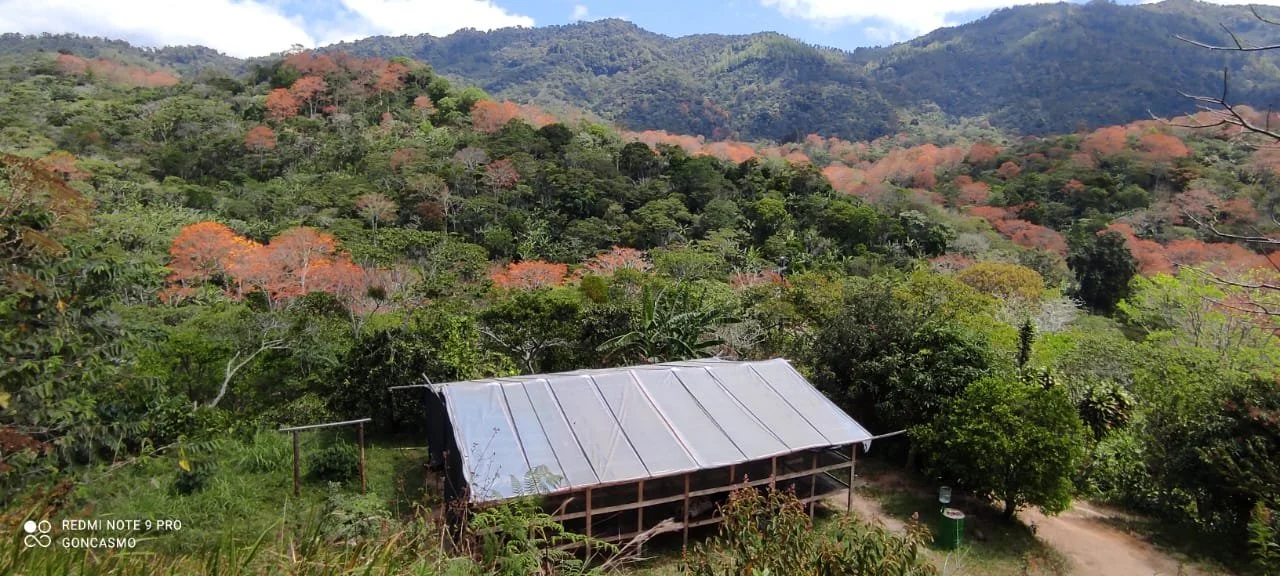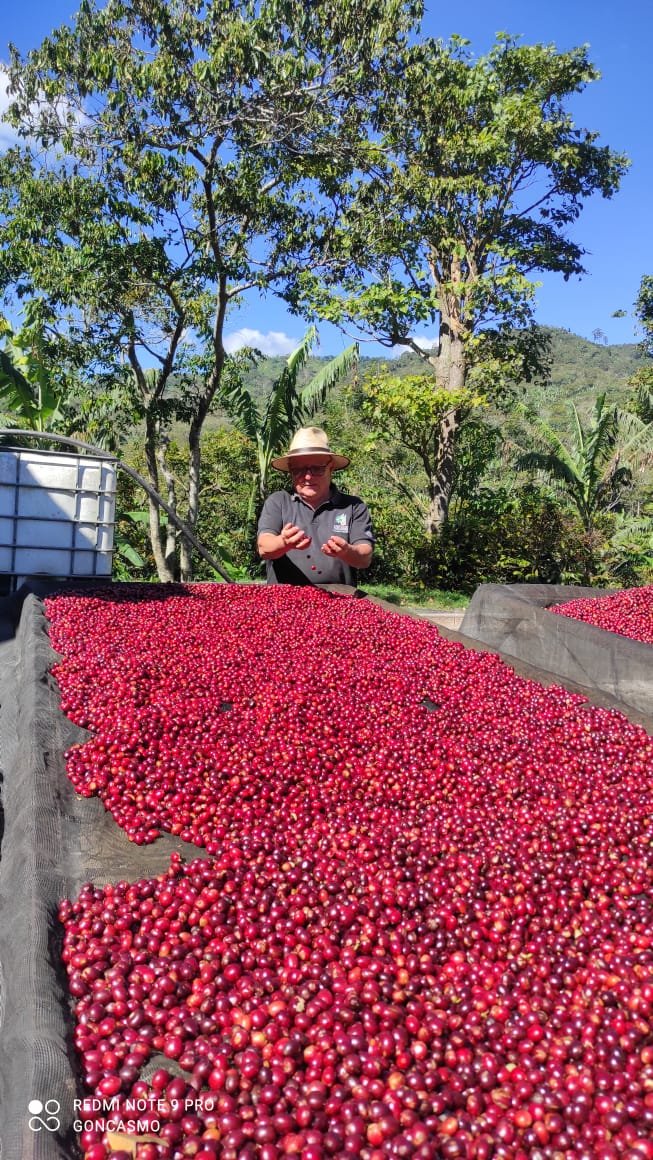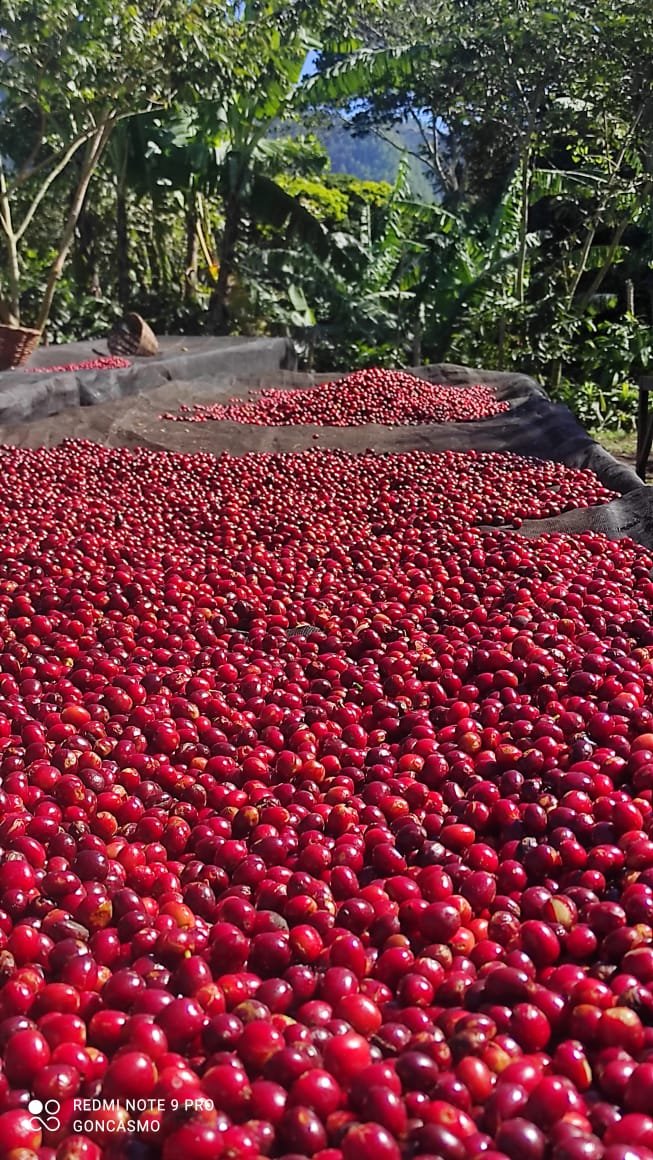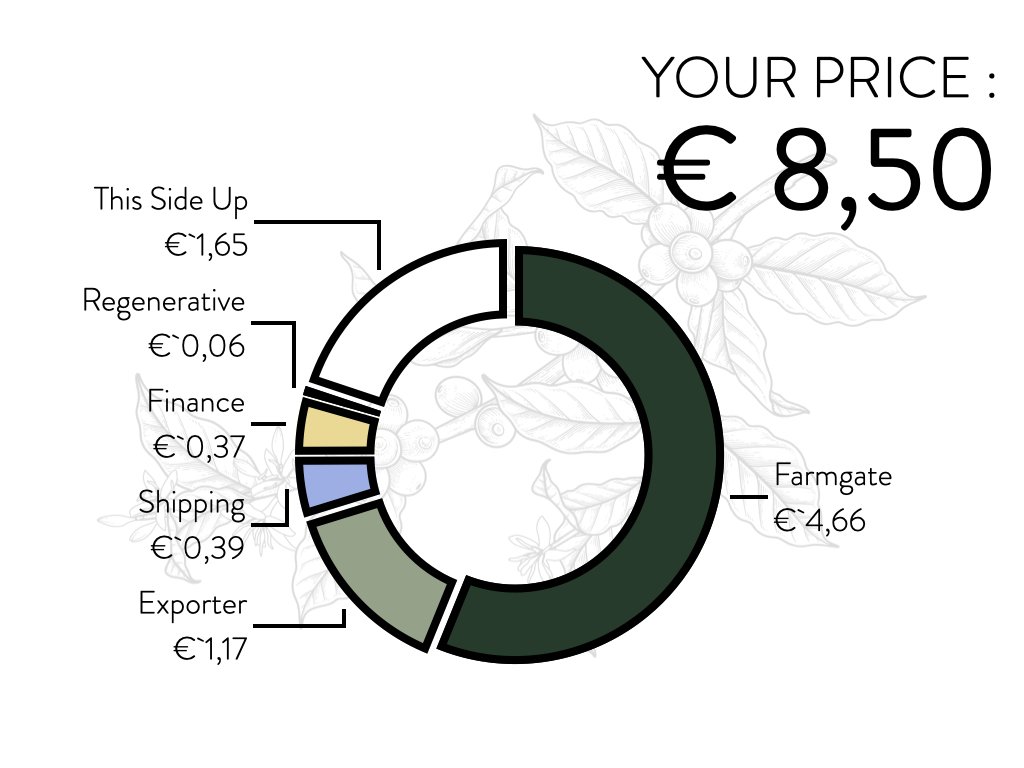A New beginning
Some of you might remember our Nicaraguan traceable farm lots that we offered from 2015 to 2018. Sadly, because grave mismanagement of EXPOCAMO, our then export ally, we had to pull out and leave this country which we hold so dear - but it was when Arjan van der Hoek from Bean Brothers introduced us to Rina and René Paguaga in 2020 that we regained hope. We were immediately drawn to their transparency, care for quality - but most of all, their integrity.
Today, Santa Lucila dry mill is a reliable drying and processing centre for producers in the region. Besides providing good prices and fair wages for a region where it’s very difficult to make a living, the Paguaga family understand quality from farm to cup, as they own some specialty farms and operate a roastery in Florida called Café Vidita. In light of the country’s history, it would have been much easier in their shoes to turn away from coffee production as many others did. Their commitment to it, even in the most extreme circumstances, shows their resolve. A partner like this made us confident to take a second chance on our beloved Nicaragua.
Only when this relationship with Santa Lucila was established, did we dare to make promises again to our old friends whom we used to represent. After all, our former exporter disappeared with their coffee leaving terrible damage to these farmers’ livelihoods. But back in 2015, that same exporter and us were the first to propose a direct relationship between them and the end-market to them, and this idea stuck so hard that even disaster couldn’t break their resolve. After our visit in 2023, many of the farmers we used to work with rewarded our loyalty and decided to form a bond with Santa Lucila especially for the purpose of the relationship with This Side Up.
Our biggest ever failure in the company was to put so much trust in our former exporter even when signs that he was not to be trusted were coming from farmers, buyers, lenders. Today, Byron Rodriguez, Luiz Almendarez and family and Silvio Sanchez are part of the This Side Up family once again, together with our new friends Gonçalo Castillo and Moncho Diaz - and all are keen to cooperate with René in our value chain. We have seldom seen such committed farmers and are confident that this group will serve as an inspiration for a new generation of Nicaraguan farmers who are keen to put their fates in their own hands.
These are the farmers that provided our 2024 microlots and Rojo blend.
For the first time in four years, and thanks to René and Santa Lucila’s export services, we are proud to say that we are able to work with our old and trusted friends again for all the coffees we buy from Nicaragua.
THIS SIDE UP VALUE CHAIN
Our Nicaragua value chain looks different than most others. In the case of Almendarez, Byron and Castillo, Santa Lucila buys wet parchment from farmers and dries it at their own drying facility.Diaz and Sanchez both organise drying and milling independently.
PROCESSING
At Santa Lucila, coffee sundries in African beds, in concrete and zarand patios. Coffee is dried to 11% humidity before being stored in the warehouse where it is stabilised. Once an order is sent, it is selected and milled.
Traceability
You can find all the signed contracts and shipping documents that we made with Santa Lucila since 2022 below (Google Drive).
Key Achievements
2016: launched our roaster-farmer connection programme with EXPOCAMO and created links with roasters in seven countries in Europe.
2017: more than doubled our roaster base, created tailor-made pre-harvest lots for connected roasters, first natural, triple A and single variety lots, 1st, 5th and 7th place in the Cup of Excellence, partnered with many new producers.
2018: extended partner farmer base to six more farmers, created single variety java lots, started offering two mid-range signature lots based on flavour.
2019: imported half of all coffee especially for dedicated roasters, indicating a strong interest in directer forms of trade. Made first plans to import from organic producers.
2020-2021: as it became clear that EXPOCAMO was neither solvable nor reachable and Francisco’s entire operation in Ocotál had come to a standstill, we had to cease our Nicaragua operation entirely. We spent most of these years trying to get a hold of him and trying in vain to help our social lenders be remunerated for their losses.
2022: got in touch with René and Rina via Arjan van den Hoek. Exported a first shipment of Nicaraguan lots from his own farms and from Silvio Sanchez and recreated the two signature blends we used to offer, now named Rojo and Amarillo. In the meantime, started preparing to get our former producers back together.
2023: Lennart visited Nicaragua and laid the foundation for a bond between Santa Lucila and some of the members our former producer network. Also met Moncho Diaz and Gonçalo Castillo, good friends of our friends. Imported coffee from René’s own partners.
2024: first import since 2019 from our former producer partners, this time via Santa Lucila. Our Rojo blend is now made completely with coffees from the farmer group, after the relationship model we succesfully applied with our Brazil Signatures.
Our QC’s Flavour
impressions
Renata Hardewijn, March 2024
Rojo Signature Blend, 2023
RECOMMENDED IKAWA PROFILE
PHOTO GALLERY
You may use these pictures freely to promote Santa Lucila among your customers.
CONTACT René Paguaga
René is in charge of Santa Lucila, you can contact him by email or phone. He is our main contact in Nicaragua and as an almost native to Florida, speaks fluent English.
CONTACT Rene Paguagua
EMAIL renepaguaga512@gmail.com
TEL +505.8408.8925
Santa Lucila, Ocotál, Nicaragua


